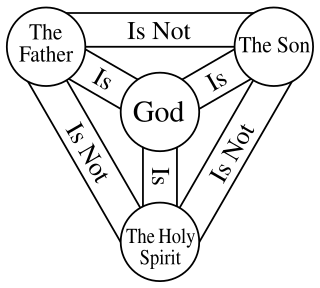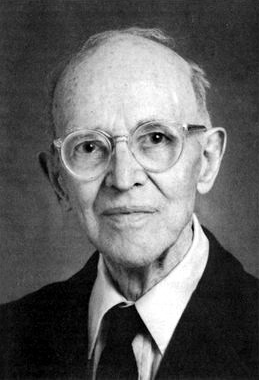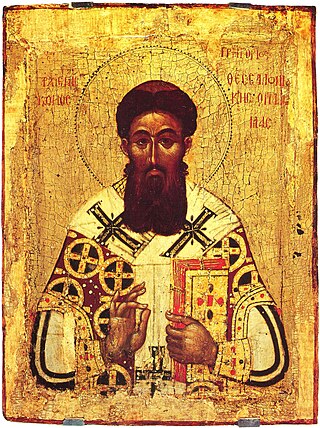Joseph A. Bracken | |
|---|---|
| Born | 22 March 1930 |
| Era | 20th century philosophy |
| Region | Western philosophy |
| School | Process philosophy |
Main interests | Theology, Metaphysics, Trinity |
Notable ideas | Process philosophy, Process theology |
Influences | |
Joseph A. Bracken, S.J. (born March 22, 1930) is an American philosopher and Catholic theologian. Bracken is a proponent of process philosophy and process theology of Alfred North Whitehead and Charles Hartshorne. Much of his work is devoted to a synthesis of revealed religion and Christian trinitarian doctrines with a revised process theology. Bracken introduced a field theoretic approach to process metaphysics.
Bracken was born on 22 March 1930 in Chicago, Illinois, United States. [1]
Bracken is Emeritus Professor of Theology at Xavier University in Cincinnati, Ohio, United States. He received his PhD from the University of Freiburg in Germany in 1968, and taught at University of Saint Mary of the Lake Mundelein Seminary in Illinois (1968–1974), and at Marquette University in Milwaukee, Wisconsin (1974–1982), before becoming Chairman of the Theology Department at Xavier in 1982. [1]
Bracken is the author and/or editor of 11 books and wrote about 150 articles in academic journals. [1]
He brief summarized his approach in a book review in 2007: This is why in my own rethinking of Whitehead's metaphysics I presumed from the start that his metaphysical categories needed revision in order to accommodate Christian belief in God as Trinity. With this in mind, I soon realized that Whitehead's key category of "society" needed further development. A "society," after all, must be more than an aggregate of actual occasions with a "common element of form" (PR 1968, 34) if philosophical atomism is to be avoided. My own solution was to reinterpret a Whiteheadian society as an enduring structured field of activity for successive generations of constituent actual occasions. Thus understood, a Whiteheadian "society" serves both to legitimate a trinitarian process-oriented understanding of God and to make Whitehead's philosophy an even stronger social ontology than he himself envisioned. That is, "the final real things of which the world is made up" are not simply actual occasions but the societies into which they spontaneously aggregate. [2]

Metaphysics is the branch of philosophy that studies the fundamental nature of reality, including the first principles of: being or existence, identity and change, space and time, cause and effect, necessity, and possibility.
Natural theology, once also termed physico-theology, is a type of theology and deism that seeks to provide arguments for theological topics based on reason and the discoveries of science, the project of arguing for the existence of God on the basis of observed so-called natural facts, and through natural phenomena viewed as divine, or complexities of nature seen as evidence of a divine plan or Will of God, which includes nature itself.

Process theology is a type of theology developed from Alfred North Whitehead's (1861–1947) process philosophy, but most notably by Charles Hartshorne (1897–2000), John B. Cobb, and Eugene H. Peters (1929-1983). Process theology and process philosophy are collectively referred to as "process thought".
Process philosophy, also ontology of becoming, or processism, is an approach in philosophy that identifies processes, changes, or shifting relationships as the only real experience of everyday living. In opposition to the classical view of change as illusory or accidental, process philosophy posits transient occasions of change or becoming as the only fundamental things of the ordinary everyday real world.

The Christian doctrine of the Trinity is the central doctrine concerning the nature of God in most Christian churches, which defines one God existing in three coequal, coeternal, consubstantial divine persons: God the Father, God the Son and God the Holy Spirit, three distinct persons (hypostases) sharing one essence/substance/nature (homoousion) As the Fourth Lateran Council declared, it is the Father who begets, the Son who is begotten, and the Holy Spirit who proceeds. In this context, one essence/nature defines what God is, while the three persons define who God is. This expresses at once their distinction and their indissoluble unity. Thus, the entire process of creation and grace is viewed as a single shared action of the three divine persons, in which each person manifests the attributes unique to them in the Trinity, thereby proving that everything comes "from the Father," "through the Son," and "in the Holy Spirit."

Alfred North Whitehead was an English mathematician and philosopher. He is best known as the defining figure of the philosophical school known as process philosophy, which today has found application to a wide variety of disciplines, including ecology, theology, education, physics, biology, economics, and psychology, among other areas.

Nontrinitarianism is a form of Christianity that rejects the mainstream Christian theology of the Trinity—the belief that God is three distinct hypostases or persons who are coeternal, coequal, and indivisibly united in one being, or essence. Certain religious groups that emerged during the Protestant Reformation have historically been known as antitrinitarian.

Charles Hartshorne was an American philosopher who concentrated primarily on the philosophy of religion and metaphysics, but also contributed to ornithology. He developed the neoclassical idea of God and produced a modal proof of the existence of God that was a development of Anselm of Canterbury's ontological argument. Hartshorne is also noted for developing Alfred North Whitehead's process philosophy into process theology.

John Boswell Cobb, Jr. is an American theologian, philosopher, and environmentalist. Cobb is often regarded as the preeminent scholar in the field of process philosophy and process theology, the school of thought associated with the philosophy of Alfred North Whitehead. Cobb is the author of more than fifty books. In 2014, Cobb was elected to the prestigious American Academy of Arts and Sciences.

David Ray Griffin was an American professor of philosophy of religion and theology and a 9/11 conspiracy theorist. Along with John B. Cobb, Jr., he founded the Center for Process Studies in 1973, a research center of Claremont School of Theology that promotes process thought. Griffin published numerous books about the September 11 attacks, claiming that elements of the Bush administration were involved. An advocate of the controlled demolition conspiracy theory, he was a founder member of Scholars for 9/11 Truth.
Daniel A. Dombrowski is an American philosopher and professor emeritus of philosophy at Seattle University. He was the president of the Metaphysical Society of America (2018–19).

In Palamite theology, there is a distinction between the essence (ousia) and the energies (energeia) of God. It was first formulated by Gregory Palamas (1296–1359) as part of his defense of the Athonite monastic practice of hesychasmos against the charge of heresy brought by the humanist scholar and theologian Barlaam of Calabria.

Hypostasis, from the Greek: ὑπόστασις, hypóstasis) is the underlying state or underlying substance and is the fundamental reality that supports all else. In Neoplatonism the hypostasis of the soul, the intellect (nous) and "the one" was addressed by Plotinus. In Christian theology, the Holy Trinity consists of three hypostases: Hypostasis of the Father, Hypostasis of the Son, and Hypostasis of the Holy Spirit.

Alasdair John Milbank is an English Anglo-Catholic theologian and is an Emeritus Professor in the Department of Theology and Religious Studies at the University of Nottingham, where he is President of the Centre of Theology and Philosophy. Milbank previously taught at the University of Virginia and before that at the University of Cambridge and the University of Lancaster. He is also chairman of the trustees of the think tank ResPublica.
Robert Cummings Neville is an American systematic philosopher and theologian, author of numerous books and papers, and ex-Dean of the Boston University School of Theology. He is Professor Emeritus of Philosophy, Religion, and Theology at Boston University.
Brian Leftow is an American philosopher specializing in philosophy of religion, medieval philosophy, and metaphysics. He is the William P. Alston Professor for the Philosophy of Religion at Rutgers University. Previously, he held the Nolloth Chair of the Philosophy of the Christian Religion at Oriel College, Oxford, succeeding Richard Swinburne.

Contemporary Whitehead Studies (CWS) is an interdisciplinary book series that publishes manuscripts from scholars with contemporary and innovative approaches to Whitehead studies. By publishing innovative and adventurous approaches to Whitehead’s philosophy that engage with the problems, promise, and ideas of the twenty-first century, Contemporary Whitehead Studies creates a vital and dynamic space for scholarly engagement.

Michel Weber is a Belgian philosopher. He is best known as an interpreter and advocate of the philosophy of Alfred North Whitehead, and has come to prominence as the architect and organizer of an overlapping array of international scholarly societies and publication projects devoted to Whitehead and the global relevance of process philosophy.
Milič Čapek, was a Czech–American philosopher. Čapek was strongly influenced by the process philosophy of Henri Bergson and to a lesser degree by Alfred North Whitehead. Much of his work was devoted to the relation of philosophy and modern physics, especially the philosophy of space and time and metaphysics.

The Center for Process Studies was founded in 1973 by John B. Cobb and David Ray Griffin to encourage exploration of the relevance of process thought to many fields of reflection and action. As a faculty center of Claremont School of Theology in association with Claremont Graduate University, and through seminars, conferences, publications and the library, CPS seeks to promote new ways of thinking based on the work of philosophers Alfred North Whitehead, and Charles Hartshorne, and others in the process tradition.